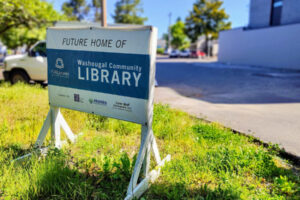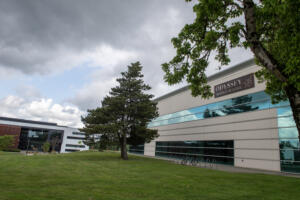Camas leaders are considering a variety of new revenue source options, including utility taxes and city-specific vehicle tab fees.
Camas Finance Director Cathy Huber-Nickerson told Camas City Council members at a workshop held Monday, July 16, the city must supplement its revenue base if city leaders want to fully fund their desired levels of service in the future.
Camas Mayor Scott Higgins said council members have been discussing this issue for a while and that, while the city is “OK in the short-term,” council members need to figure out the best way to fund city services over the long-term.
In her presentation Monday night, Huber-Nickerson gave city council members an overview of the city’s six-year (2019 to 2024) general fund forecast.
The finance director said housing will continue to grow, but the city could experience a “soft recession” in 2020 and 2021. Earlier in the evening, Huber-Nickerson told council members a national trade war could “trigger a recession and higher prices.”




